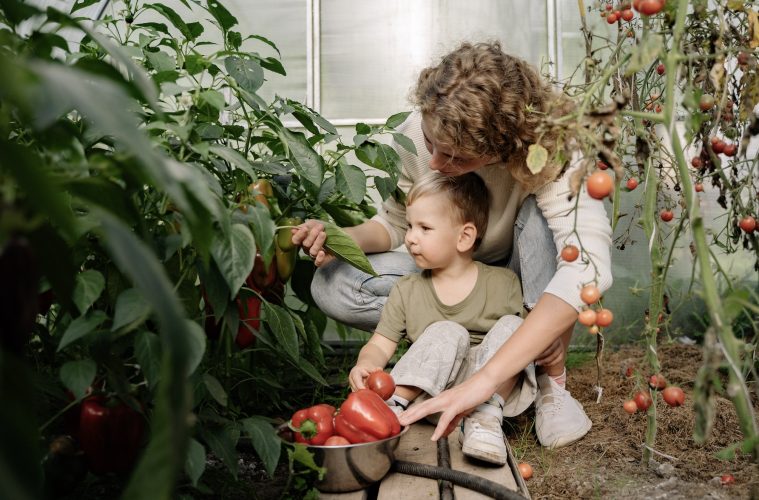Gone are the days of children spending every waking hour outside, sighing begrudgingly when called in for dinner. Studies show children spend an average of five hours per day looking at a screen, and that number increases to over seven hours for teens. To make those statistics all the more distressing, the study did not include school – or homework-related screen time. Here’s why you should get your kids into gardening…
Those of us who spent our childhood outdoors know how important it was for our health, development and well-being. Children of the 21st century, very aptly referred to as the ‘indoor generation’, are losing out on these benefits. But there is a simple solution to reverse this trend and help to foster gratitude for the local environment in your kids – gardening. Experienced gardeners can (and often do) go on indefinitely about the benefits of gardening. They cite relaxation and a strong connection to nature you can’t achieve doing anything else. But when it comes to kids and their incredibly malleable brains and bodies, the benefits are far beyond that.
Why you should get your kids into gardening:
PHYSICAL ACTIVITY
First off, gardening involves tons of physical activity – potentially more so when you have the energy of a six year old. Regular gym-goers could even consider subsidising their weekly workout with an hour or two in the garden, burning around 300 calories in the process. For younger children in the early stages of physical development, general activity is not the only benefit. A study published in the Journal of Therapeutic Horticulture in 2015 found that gardening and related activities boosted the fine motor skills of pre-school learners. Wider physical skills – object control or body management encompassing coordination and agility – also have the potential to improve through a range of gardening activities such as digging or weeding. This translates into faster learning when it comes to essential tasks such as writing or playing sports.
GRATITUDE FOR THE ENVIRONMENT
However, perhaps the greatest benefit of all is the improvement of children’s attitudes toward the environment. Children who engage regularly with the natural world around them build a sense of empathy for plants and wildlife that simply can’t be taught indoors. As green space in our towns and cities is increasingly replaced by concrete, and environmental degradation continues to soar, creating a generation of kids with gratitude toward the planet is more important than ever.
SENSORY STIMULATION
Also falling in the realm of physical development is sensory stimulation. There is no doubt that gardening exercises all five senses, and dramaticallyso. Vivid colours, rich textures, lively sounds, fragrant scents and delicious produce are staples of any home garden. Engagement with each of these senses fosters curiosity and supports cognitive growth, creating smarter kids. Sensory stimulation forms part of another beneficial category – mentalhealth and wellness. An entire branch of therapy aimed at assisting mental- health patients has spawned out of the cognitive benefits of gardening, known as therapeutic horticulture. Scientists have seen great improvement in patients with dementia and anxiety after engagement with meticulously designed therapeutic gardens emphasising the peaceful characteristics of nature and its healing properties.
IMPROVED IMMUNE SYSTEM
Garden soil alone is beneficial to well-being – all you need to do is dig (or play) in the dirt. A study found a bacterium in soil, Mycobacterium vaccae, has the potential to improve the immune system, lower stress and improve brain activity. And, as many already know, interacting with nature, or simply existing in it, is proven to reduce stress and boost moods. If there was ever a true ‘key to happiness’, gardening would certainly be involved. Beyond physical and mental growth, gardening also teaches a range of practical and valuable life skills to you children and teens. Central to this is executive function, the part of the brain that solves problems. Gardening exercises this, effectively teaching multitasking, following directions and creativity. It also teaches personal responsibility and patience – vital skills in the age of tech and instant gratification.
As beneficial as gardening is, children need to know the importance of safety too:
• Always clean produce thoroughly before eating.
• Wash hands just as carefully after working in the garden. • Don’t let kids work with manure and never use it fresh in the garden.
• Encourage the kids to always work with gloves, to wear a hat and to apply lots of sunscreen.
ALSO SEE HOW TO HACK YOUR MOOD USING COLOUR

